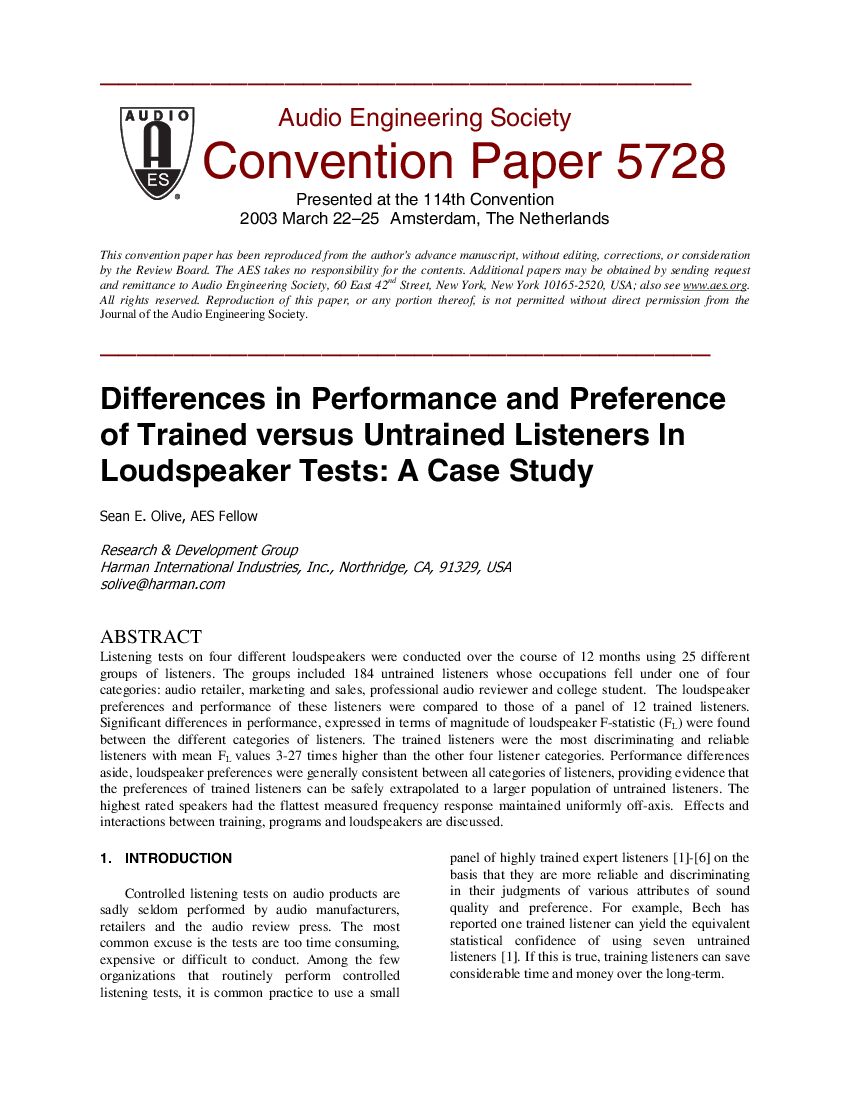Home / Publications / E-library page
You are currently logged in as an
Institutional Subscriber.
If you would like to logout,
please click on the button below.
Home / Publications / E-library page
Only AES members and Institutional Journal Subscribers can download
A series of 28 listening tests were conducted over the course of 11 months involving 199 different listeners and 4 different loudspeakers to determine the repeatability, accuracy and preferences of untrained versus trained listeners. The results indicate remarkable repeatability and similarity in preference among both trained and untrained listeners. This suggests that training does not bias listeners` preference, and their results can be extrapolated to a larger population of untrained listeners. The trained listeners tended to use the lower half of the preference scale compared to untrained listeners, and produce more reliable and discriminating preferences amongst the different loudspeakers. Other factors that produce variance in preference ratings include training, program, the context and number of speakers compared, audiometric performance and biases within the preference scale itself. A comparison of the acoustical measurements of the loudspeakers and their mean preference rating show clear correlations.
Author (s): Olive, Sean E.
Affiliation:
Research & Development Group, Harman International Industries, Inc., Northridge, CA
(See document for exact affiliation information.)
AES Convention: 114
Paper Number:5728
Publication Date:
2003-03-06
Import into BibTeX
Session subject:
Psychoacoustics, Perception, and Listening Tests
Permalink: https://aes2.org/publications/elibrary-page/?id=12581
(3842KB)
Click to purchase paper as a non-member or login as an AES member. If your company or school subscribes to the E-Library then switch to the institutional version. If you are not an AES member Join the AES. If you need to check your member status, login to the Member Portal.

Olive, Sean E.; 2003; Differences in Performance and Preference of Trained versus Untrained Listeners In Loudspeaker Tests: A Case Study [PDF]; Research & Development Group, Harman International Industries, Inc., Northridge, CA; Paper 5728; Available from: https://aes2.org/publications/elibrary-page/?id=12581
Olive, Sean E.; Differences in Performance and Preference of Trained versus Untrained Listeners In Loudspeaker Tests: A Case Study [PDF]; Research & Development Group, Harman International Industries, Inc., Northridge, CA; Paper 5728; 2003 Available: https://aes2.org/publications/elibrary-page/?id=12581